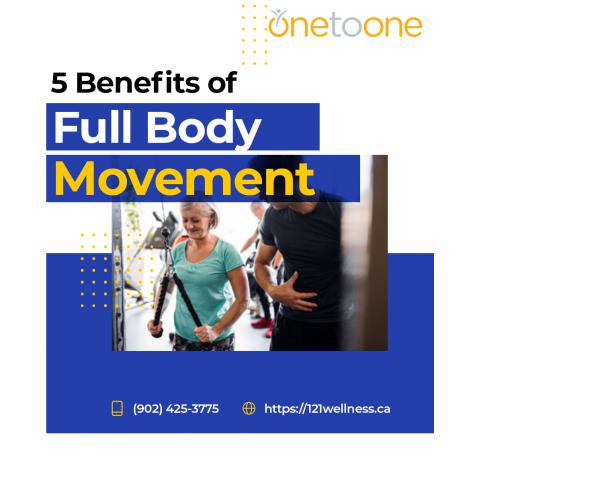
Sitting for long periods everyday and physical inactivity can be harmful to the body. Setting a goal to incorporate movement into your daily routine will improve your mental and physical health.
Our bodies are designed for movement; however, improper technique may cause undue stress to the body and result in pain and abnormalities. Physiotherapists can plan a range of exercises that are suitable for your abilities, needs, and goals.
Here are some benefits of engaging in full-body movements.
- Achieve more in less time.
Not everyone can commit long hours for workouts. Full-body movements increase the efficiency of your exercise routine. They require less time, which is ideal if you’re concerned about your schedule but would like to maintain regular sessions.
Unlike exercises that focus only on a single muscle group or area, full-body training gets several muscles working together at once. They include exercises such as lunges that require more movement and heavier training loads.
You can burn more calories and increase oxygen supply to more muscles. You can perform your workouts twice or thrice a week, instead of having to commit to daily sessions.
- Lose weight more efficiently.
If your goal is to burn fat and calories, then full-body exercises are ideal. Even if you’re consuming fewer calories on a restricted diet, don’t quit working out because you still need to exercise your muscles.
Your body will continue to burn more calories even at rest.
A physiotherapist can ensure you’re choosing the right weight-loss exercises according to your skill level and specific goals.
- Increase recovery rate.
Since full-body workouts don’t need to be done daily, you allow your body to recover before the next session. This may be ideal if you’re having a hard time maintaining day-after-day workouts.
During recovery days you’ll still engage in physical activities but they shouldn’t be as long or strenuous as the program itself. For instance, you could focus on activities like cycling, swimming, or yoga on recovery days.
The important thing is to go slow and ensure you’re performing safe activities.
Full-body movements allow you to do more in less time. You can accomplish a lot in less than an hour.
Focus on activities offering the most benefits. Instead of having to perform several different exercises or using different machines, you allot your energy into a single program and stimulate as many muscles as possible.
- Boost strength.
Do you love challenging yourself to new exercise routines? If you tend to get bored quickly doing the same exercises daily, full-body training may help bring back your interest.
You’re incorporating movements that require more effort to execute so you also get to increase your strength and flexibility.
With guidance from your trainer, you can increase reps or sets all while minimizing the risk of injuries.
Talk to a physical trainer before engaging in full-body movements
Spark interest in working out as you move from your usual routine to more challenging ones.
But before switching to full-body workout routines, consult with a professional first. A physiotherapist can ensure you’re doing the right exercises so you avoid injuries and maximize the benefits from every session.





